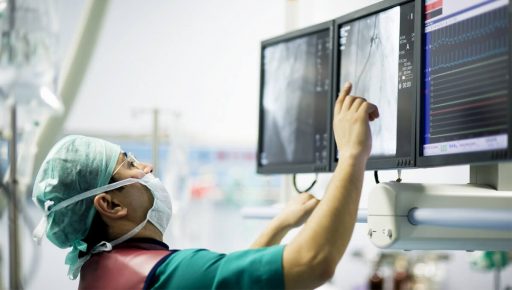
© DR
Collecting data is one thing; interpreting them is another. Here is how Axians helps businesses read their data more effectively so as to boost their performance.
The Internet of Things, augmented reality, self-driving vehicles, smart cities… in the years ahead, we will see an exponential growth in data volume. Every person, every robot, and every location will receive and send digital signals. The era of big data is only just getting under way – along with related specialities including, first and foremost, data analytics.
According to Arno Hordijk, Chief Technology Officer (CTO) and analytics expert at Axians Netherlands (VINCI Energies), “Data resources are nearly unlimited. The only limit is us – we humans. So we have to make sure that our imagination will continue to come up with new solutions. Data have a specific function, but it’s up to us to find creative ways to use them to our advantage.”
Both quantitative and qualitative
All sectors are undergoing a transformation. Business, politics, marketing, and sports are only beginning to gauge the multiple revolutions currently under way. Some of these revolutions are cause for concern, while others provide hope. Data analytics generate quantitative results, but they also bring about qualitative consequences.
“In the healthcare sector, we work with university-affiliated hospitals, for example, to create an analytics environment that enables the hospital to process and analyse patient and medical data to improve diagnostics, patient care and medical results. It’s a matter of using data to optimise the performance of hospital services,” says Arno Hordijk. “In the case of disability care, we analyse information on the recurrence and likelihood of incidents depending on the context in which they occur.”
Another focus area cited by the Axians Netherlands CTO: “Due to the ageing of the population and the more unhealthy lifestyles, as the focus in healthcare changes towards prevention, data analytics will play an important role in this process.”
“Due to ageing of the population and more unhealthy lifestyles, focus in healthcare changes towards prevention.”
Knowledge and learning
Discounting human intuition is a mistake; failing to use data as an aid for problem-solving is also a mistake. We need to enhance knowledge by cultivating learning, and creating a balance between subjectivity and a new form of objectivity. Top-down thinking must be partially reversed.
“Organisations,” states Arno Hordijk, “now believe that data will play an important role, but they don’t know exactly what role. We’re here to help.” In concrete terms, “The search for a solution to a specific business problem starts at our Datalab. Together with the organisation, data scientists examine the focus area and the available data. In addition to knowledge of analytics and IT skills, these scientists also provide a dose of creativity and inquisitive thinking. This combination quickly gives rise to a specific idea and working prototype.” says the Axians Netherlands CTO.
20/03/2017

